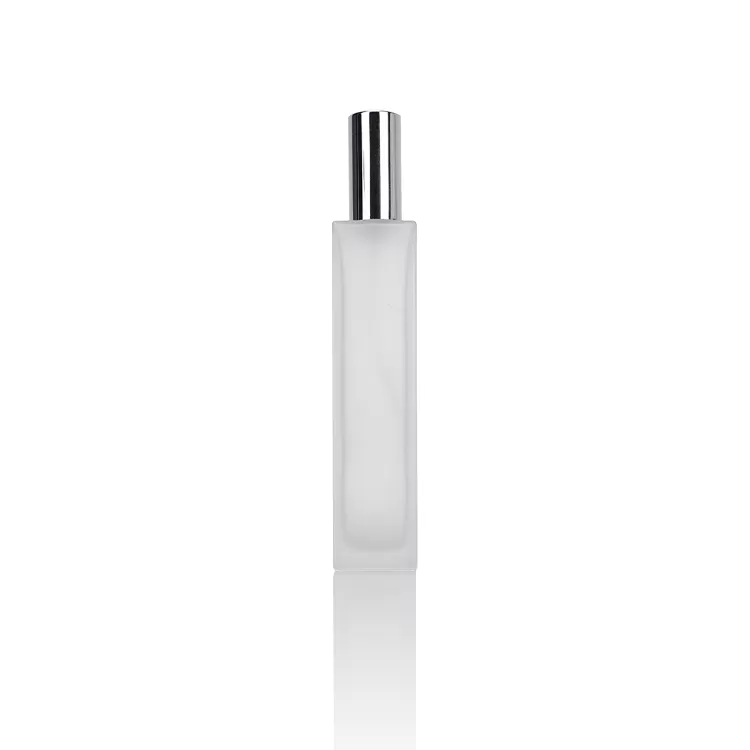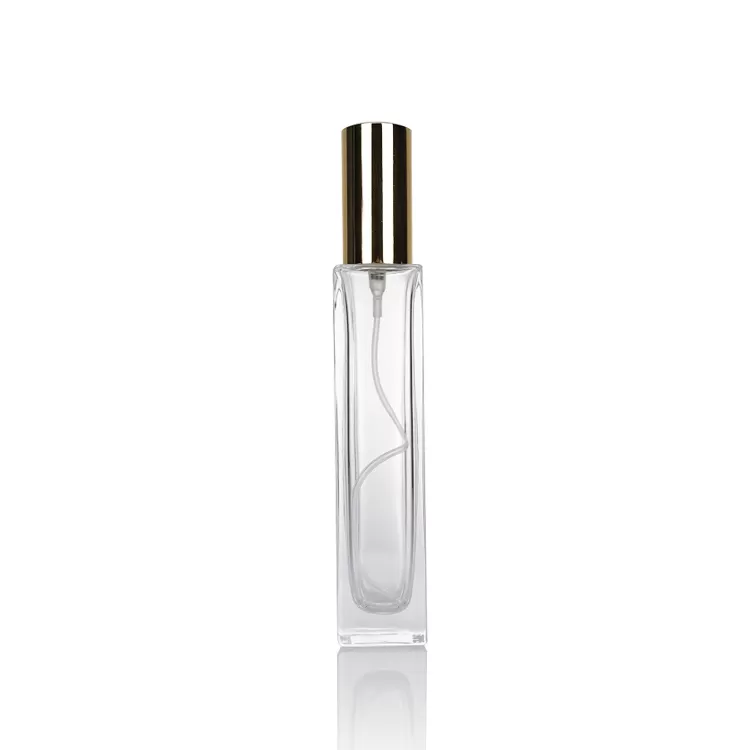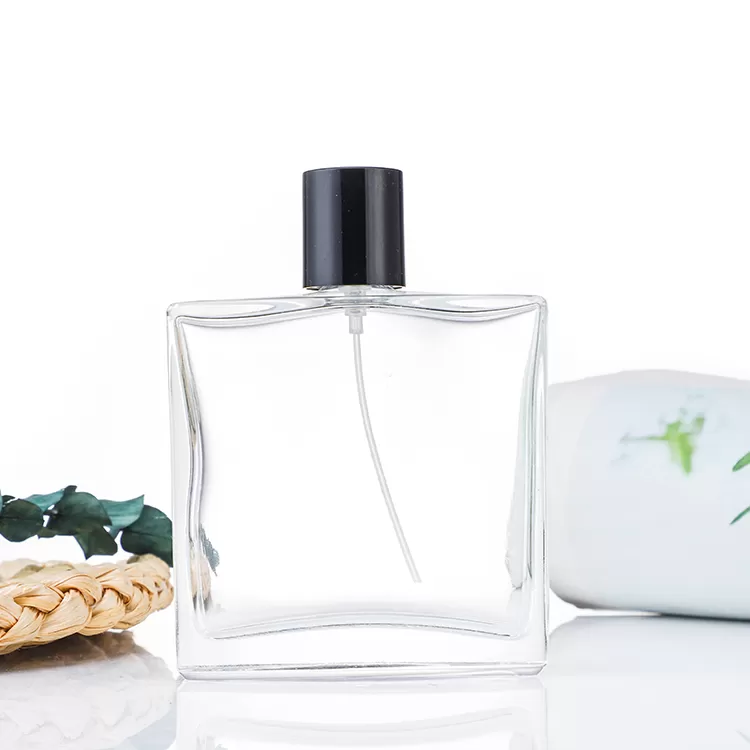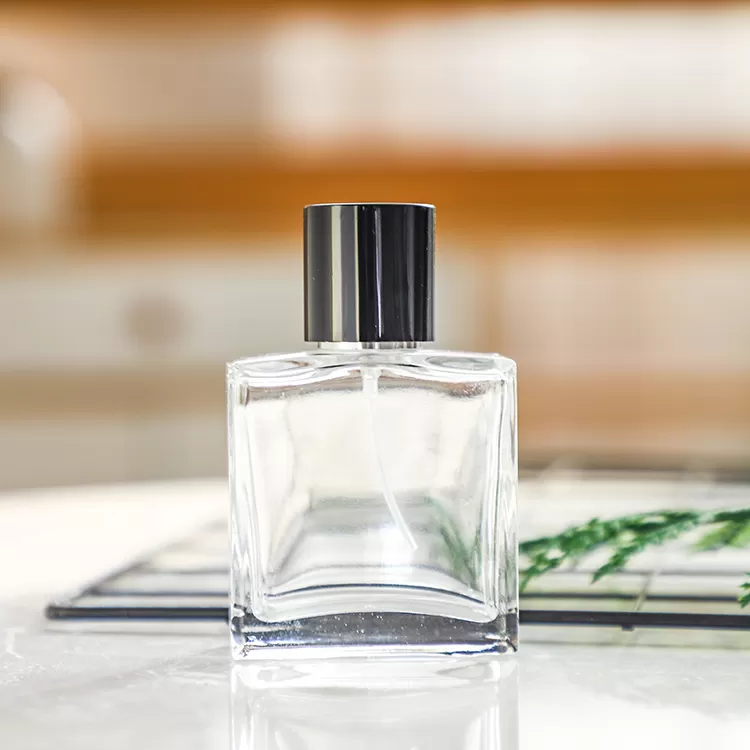Unlock the Secret: Tips and Tricks to Make Your Perfume Last Longer
04-18-2025
Ever wonder why that beautiful fragrance you sprayed on this morning seems to vanish by lunchtime? You're not alone. Making your favorite perfume last longer is a common desire, allowing you to enjoy its lovely scent from morning to night and truly leave a lasting impression. This article delves into the art and science behind fragrance longevity, offering practical tips and tricks to maximize the staying power of your chosen aroma. We'll explore application techniques, the types of perfume that naturally endure, proper storage methods, and even creative ways to use perfume beyond just spritzing your skin. Read on to discover how a few simple adjustments can significantly enhance your fragrance experience.
Why Does My Perfume Fade So Quickly? Understanding Fragrance Longevity
Several factors contribute to how long a perfume lasts on your skin. The primary determinant is the concentration of fragrance oils within the formulation. Higher concentrations generally mean longer lasting power. Think of Eau de Parfum versus Eau de Toilette or cologne; the former typically has a higher oil percentage. Additionally, the specific ingredients used play a significant role. Some notes, like heavy woods or musk (often found in the base notes), inherently evaporate slower than lighter top notes like citrus or delicate floral notes.
Your individual body chemistry, skin type (oily skin tends to hold scent longer than dry skin), and even the ambient temperature and humidity can impact the longevity of a perfume. The alcohol content in a perfume helps project the scent, but it also contributes to evaporation. Understanding these elements is the first step towards making your chosen aroma persist. The goal is to find the right fragrance and application methods that work best with these variables.
Where is the Best Place to Apply Perfume for Maximum Staying Power?
The classic advice holds true: apply perfume to your pulse points. These are areas where your veins run closer to the skin's surface, generating more body heat. This warmth helps to gently diffuse the perfume throughout the day, making the scent more noticeable and seemingly last longer. Key pulse points include:
- Inside your wrists
- Behind your ears
- At the base of your throat
- Inside your elbows
- Behind your knees
Applying perfume to these warmer areas enhances its development and projection. Avoid the common mistake of rubbing your wrists together after application, as this can break down the delicate fragrance molecules and alter the intended scent. A gentle spray or dab is all that's needed for the perfume to work its magic. Remember, a little goes a long way when applied correctly.

Does Skin Type Affect How Long Perfume Lasts?
Yes, your skin type significantly influences the longevity of a perfume. Oily skin naturally retains fragrance better and longer because the oils on the skin surface bind with the perfume molecules, slowing down the evaporation rate. If you have oily skin, you might find that even lighter fragrance formulations tend to last quite well.
Conversely, dry skin lacks the natural oils to hold onto the scent, causing the perfume to evaporate more quickly. Individuals with dry skin often find their fragrance fades faster. However, this doesn't mean you can't enjoy a long-lasting perfume experience. Preparing your skin before applying the perfume can make a huge difference, which we'll discuss next. Understanding your skin type helps tailor your fragrance routine for optimal results.
Which Type of Perfume Lasts the Longest? (Eau de Parfum vs. Others)
The concentration of aromatic compounds is the key differentiator in perfume types and directly impacts how long the scent lasts. Here's a breakdown of common types, from least to most long-lasting:
| Fragrance Type | Concentration of Fragrance Oil | Typical Longevity | Notes |
|---|---|---|---|
| Eau Fraiche | 1-3% | 1-2 hours | Very light, mostly water, minimal alcohol. |
| Eau de Cologne | 2-4% | ~2 hours | Light, fresh, often citrus-based. |
| Eau de Toilette | 5-15% | 3-5 hours | Popular choice, good for day wear. |
| Eau de Parfum | 15-20% | 5-8 hours | Stronger, richer and more complex. |
| Parfum / Extrait | 20-30%+ | 8+ hours | Highest concentration, most potent. |
As the table shows, Eau de Parfum (EDP) and Parfum (also known as Extrait de Parfum) offer the best longevity due to their higher concentration of fragrance oil. While Eau de Toilette (EDT) is very common and suitable for many, if your primary goal is a perfume that lasts the longest, opting for an EDP or Parfum is generally your best bet. This higher concentration means the perfume lasts the longest on the skin.
Are There Specific Fragrance Notes That Tend to Last Longer?
Absolutely. Within any perfume, the different ingredients, or "notes," evaporate at different rates. This creates the evolving scent profile experienced over time. Notes are typically categorized into three levels:
- Top Notes: These are the initial scents you smell immediately after applying the perfume. They are usually light, fresh, and volatile (e.g., citrus, light florals, herbs). They evaporate the quickest, often within 15-30 minutes.
- Middle Notes (Heart Notes): These emerge as the top notes fade and form the core character of the fragrance. They often include fuller florals (like rose, jasmine), spices, or fruits. They last longer than top notes, typically for a few hours.
- Base Notes: These are the deepest, richest, and longest-lasting components of a perfume. They provide depth and fixation, anchoring the scent to your skin. Common base notes include musk, vanilla, amber, patchouli, sandalwood, and other woody notes. These notes tend to linger for many hours, sometimes even after others have faded.
Therefore, perfumes with prominent and high-quality base notes like woods, resins, amber, and musk generally last longer than those dominated by fleeting citrus or light floral notes. When looking for long-lasting perfumes, pay attention to the fragrance family and the description of its base.
How Can I Prepare My Skin to Make Perfume Last Longer?
Proper skin preparation is crucial, especially if you have dry skin, to help your perfume last all day. The key is hydration. Fragrance clings better to moisturized skin. Before you apply your perfume, ensure your skin is clean and well-hydrated.
Consider applying an unscented body lotion or moisturizer to the areas where you plan to spray your perfume. This creates a receptive base for the fragrance molecules to adhere to, slowing down evaporation and making the scent last longer on your skin. Some people even use a tiny dab of petroleum jelly on their pulse points before applying perfume for a similar effect, although an unscented lotion is often preferred. Remember, hydrated skin is happy skin for holding onto that beautiful fragrance.

What Are the Best Techniques to Apply Perfume Correctly?
How you apply perfume matters almost as much as where you apply it. Here are some best practices:
- Don't Rub: As mentioned earlier, avoid rubbing your wrists together after applying. This friction breaks down the perfume molecules and diminishes the scent. Let it air dry naturally.
- Spray Distance: Hold the perfume bottle about 3-6 inches away from your skin when you spray. Applying perfume directly too close can lead to pooling and uneven distribution. This distance allows for a finer mist and better coverage.
- Target Pulse Points: Focus the spray on your chosen pulse points (wrists, neck, behind ears, inside your elbows, behind knees).
- Hair Application (Indirect): Never spray perfume directly onto your hair, as the alcohol content can be drying. Instead, spray perfume on your hairbrush, let the alcohol evaporate for a second, and then run the brush through your hair. Hair holds scent very well.
- Clothing (Use Caution): While fabric can hold fragrance for a long time, be cautious. Some perfumes can stain delicate fabrics. If you choose to apply to clothes, do a patch test first and spray lightly from a distance.
Following these techniques ensures you get the most out of each spray and helps your favorite perfume project its intended aroma effectively and for longer.
How Does Storing My Perfume Bottle Affect Its Scent and Longevity?
Proper storage is vital for preserving the integrity and longevity of a perfume. Exposure to heat, light, and humidity can degrade the delicate fragrance oils, altering the scent and potentially shortening its lifespan. Here’s how to store your perfume correctly:
- Keep it Cool: Heat is the enemy of perfume. Avoid storing bottles near radiators, windowsills, or in cars. A cool, consistent temperature is ideal.
- Keep it Dark: Direct sunlight and even strong artificial light can break down fragrance molecules. Store your perfume bottle away from light, preferably in its original box or inside a drawer or cupboard. While decorative, keeping an empty perfume bottle on display is fine, but full ones need protection. Elegant flat perfume glass bottles look great, but store them wisely!
- Keep it Dry: Bathrooms are often humid environments, which can negatively affect perfume. While convenient, it's best to store your collection in a bedroom or closet where humidity levels are lower. Storing it in a cool, dark, and dry place is the golden rule.
High-quality perfume bottles, like those potentially sourced by buyers like Mark Thompson from manufacturers like Allen, are designed to protect the fragrance. Ensuring the cap is tightly sealed prevents evaporation and oxidation. Treating your perfume with care ensures it smells as intended for as long as possible before it potentially goes bad.

Can Layering Fragrances Help My Perfume Last?
Yes, layering is a popular technique used to enhance both the complexity and longevity of a perfume. It involves using multiple products with the same or complementary scents. Start by using a shower gel or soap, followed by a body lotion or cream from the same fragrance line as your perfume.
Applying your perfume over the corresponding scented lotion creates a well-moisturized and fragranced base, giving the perfume molecules more to adhere to and slowing their evaporation. This technique helps the scent last longer and can even add depth to the overall aroma. You can also experiment with layering another perfume with a simple, single-note fragrance (like vanilla or musk) to create a unique, personalized, and longer-lasting scent profile. Just ensure the scents complement each other well.
What Can I Do with Old Perfume or Scents I Don't Wear Often?
Don't let that old perfume or those unwanted perfumes gather dust! Even if a perfume is slightly past its prime (expired perfume might lose some top notes but the base often remains) or simply not your current favorite, there are creative ways to use perfume:
- Room Spray: Decant the perfume into a simple spray bottle (perhaps diluted with a little water or perfumer's alcohol if very strong) and use it as a room spray to freshen up living spaces, closets, or linens.
- Scented Drawer Liners/Sachets: Spray the perfume onto fabric scraps, cotton balls, or tissue paper and place them in drawers or closets to impart a subtle fragrance. Add a few drops to potpourri.
- Car Freshener: Lightly spray the perfume onto your car's floor mats (avoiding dashboard surfaces) for a pleasant aroma during your commute.
- DIY Diffuser: You can sometimes add a few drops of perfume to an unscented diffuser base oil (check compatibility first) or simply spray reeds lightly.
- Scented Stationary: Lightly spray the perfume onto letters or cards before sending them for a personal touch.
Repurposing perfume is a fantastic way to enjoy a fragrance you might not wear anymore, ensuring no precious drops go to waste and finding new ways to appreciate its aroma. Consider using a mini glass spray bottle for these repurposed uses. A quality perfume bottle, like a luxury 50ml atomizer, can often be cleaned and repurposed too.

Key Takeaways for Long-Lasting Perfume:
- Hydrate Skin: Apply perfume to well-moisturized skin; use unscented lotion on pulse points first.
- Target Pulse Points: Apply to warm areas like wrists, neck, behind ears, inside elbows, and behind knees. Body heat diffuses the scent.
- Don't Rub: Let the perfume air dry naturally after application. Rubbing your wrists breaks down the fragrance.
- Choose Higher Concentrations: Eau de Parfum and Parfum generally last longer than Eau de Toilette or cologne.
- Note the Notes: Perfumes rich in base notes (musk, woods, amber, vanilla) tend to last longer.
- Store Properly: Keep your perfume bottle in a cool, dark, dry place, away from heat, direct sunlight, and humidity.
- Apply Indirectly to Hair: Spray perfume on your hairbrush, not directly on hair, for a lasting scent without drying.
- Consider Layering: Use matching scented body products (lotion, shower gel) to build a lasting fragrance base.
- Repurpose Old Scents: Use old perfume or unwanted perfumes as a room spray, drawer sachet, or car freshener.








